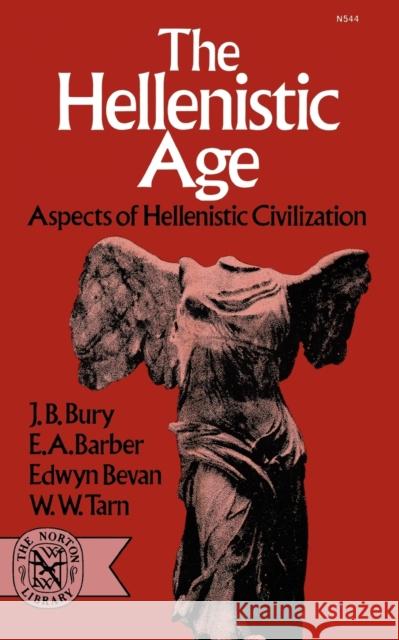The Hellenistic Age: Aspects of Hellenistic Civilization » książka
The Hellenistic Age: Aspects of Hellenistic Civilization
ISBN-13: 9780393005448 / Angielski / Miękka / 1970 / 160 str.
In "the Hellenistic Age and History of Civilization," J.B. Bury discusses important advances made in mathematics, astronomy, and geography; the pattern of the hellenization of Rome; and changing Greek ideas of barbarianism and cosmopolitanism. E. A. Barber's essay, "Alexandrian Literature," deals with the characteristic styles of the period, Alexandrian poetry, and the new prose forms. Besides the scientific and learned writing it is known for, Professor Barber demonstrates, the age produced much popular satiric and moralizing poetry, realistic mime, epigrams, and parodies.As the system of the city states declined, increasing social instability fostered the rise of a number of popular philosophies. In another chapter, Edwyn Bevan outlines the similarities and differences between the Platonic, Peripatetic, Stoic, Epicurean, Sceptic, and Cynic schools and the effect of Christianity on their society.W. W. Tarn's "The Social Question in the Third Century" examines the conditions that led to revolution in the century after Alexander. The author describes the economic disturbances leading to the polarization of classes, and assesses the phases of social revolution as exemplified in the uprisings at Sparta.











